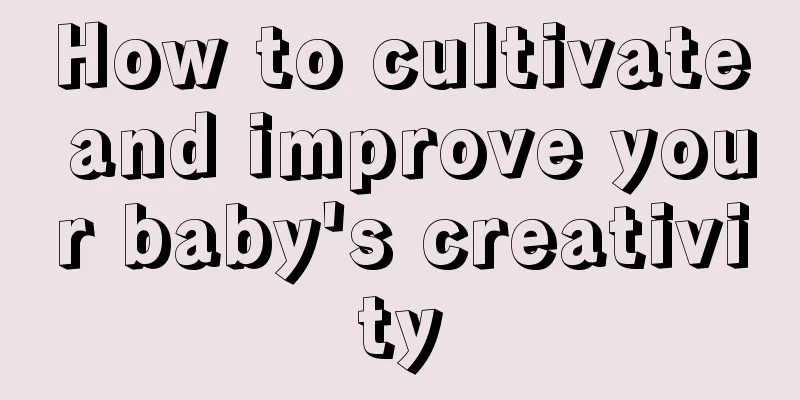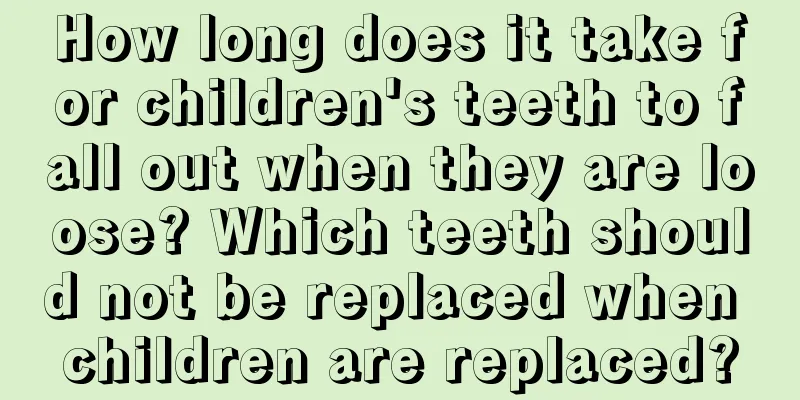6 reasons why babies like to scratch their ears

|
Although babies can't speak, they can tell us through body language. So why do babies like to scratch their ears? Why do babies like to scratch their ears?1. Teething When the baby is teething, the gingival nerves and surrounding tissues will make the baby feel uncomfortable in the gums and will drool frequently. If the baby lies flat, this uncomfortable feeling can be transmitted from the gums to the ears, so the baby will scratch his ears. The baby relieves the discomfort by rubbing his ears constantly. 2. Foreign objects in the ears If your baby accidentally puts some foreign objects into his ears while playing, it is normal for him to scratch his ears, such as small insects, sand, etc., which are small objects that can easily enter the ears. If there is a foreign object in the ear, do not dig it out with your hands. Use an ear spoon if you can see the foreign object, otherwise go to the hospital for an ENT examination. 3. Cerumen The baby's ear canal has an automatic cleaning function, but some babies have more secretions (earwax), and the uncomfortable baby can't help scratching his ears. At this time, parents can use a soft cotton swab to clean the secretions, or gently rub the baby's ear to help remove the earwax. If your baby's ears have liquid-like discharge or a foul-smelling discharge, parents should take the baby to see a doctor immediately to prevent the condition from getting worse. 4. Ear infection Babies have low immunity and are prone to ear infections and ear diseases such as otitis media if they are not careful, so babies like to scratch their ears. Or an upper respiratory tract infection can also cause otitis media. The nasal mucosa and nasopharyngeal mucosa may easily swell and become congested, and may even cause stenosis or obstruction of the Eustachian tube. Therefore, parents should carefully protect the baby's facial features, ensure cleanliness, and avoid infection caused by unhygienic conditions. 5. Eczema of the external auditory canal External ear eczema is an allergic superficial inflammatory reaction of the auricle, external auditory canal and surrounding skin, and is common in babies with allergic constitutions. If a baby has external auditory canal eczema, he will not be able to help but scratch his ears and head all the time, so many babies will have marks of scratching. Parents should not be careless and should take the baby to the hospital for examination in time and apply anti-allergic drugs locally under the guidance of a doctor. 6. Curiosity As babies grow up, they become curious about everything around them, including themselves. They think their hands, feet, eyes, nose, and ears are all interesting. Therefore, if the baby scratches his ears happily and does not look uncomfortable, parents do not need to be too nervous. They just need to pay attention to the baby and prevent him from scratching himself. What is the cause of baby's ear eczema?My baby's ears are itchy and he often scratches them with his little hands, becoming extremely irritable. What's wrong? After carefully observing the inside of the baby's ears, I found clusters of papules and spots. I went to the doctor and was diagnosed with ear eczema. Dear parents, do you know what ear eczema is? Baby ear eczema refers to eczema that occurs in the ear canal. It is a type of baby eczema, a common skin disease in infancy, and an allergic disease. Baby ear eczema often has red spots and papules in the ear canal, accompanied by paroxysmal itching, especially when it is warm. The baby may rub his ears on the pillow or the mother's clothes, or scratch them with his hands, becoming irritable, crying and restless, which often affects health and sleep. Excessive scratching, rubbing, washing and ironing may aggravate the condition of ear eczema, and even some fluid may ooze out. It is often secondary to skin damage and infection, causing nearby lymph node swelling, accompanied by fever, loss of appetite and other symptoms. Three key points for baby ear care1. Clean the external auditory canal and back of the ear of newborns If you find water in your baby's ears after bathing, you can use a dry cotton swab to gently wipe the baby's external auditory canal and auricle. Be careful and gentle, and never go deep into the ear canal to avoid hurting the baby's eardrum. In addition, when bathing or cleaning the baby, mothers should also pay attention to whether there is dirt behind the baby's ears, because this position is hidden and easily overlooked, but it is most likely to accumulate sweat and stains, causing eczema, so it is also necessary to pay attention to regular cleaning. If the baby has eczema, you can use a special eczema cream for the baby. 2. Prevent water and milk from entering the newborn's ear canal To prevent water and milk from entering the baby's ears and causing ear inflammation, a key point is that when bathing a newborn baby, parents should pay attention to holding the baby's head with their hands and gently folding the baby's ear with the thumb and little finger to cover the ear canal to prevent water from accidentally entering the baby's ears during bathing (if the above actions cannot be done, you can also gently plug the ears on both sides with cotton, and remember to remove them after bathing). Another important point is that after feeding, the baby should be held upright and burped for a while to prevent the baby from spitting up milk when lying down, which will cause milk to flow into the ear canal and cause ear inflammation. At the same time, mothers should also try to avoid feeding the baby while lying down, which can also easily cause milk to enter the ear canal and cause inflammation. 3. Never clean your newborn baby’s ears yourself Some parents have the habit of cleaning their ears. However, for newborn babies, parents should not clean their ears at home. Although babies' ears will have secretions, their organs are very delicate and can be easily damaged if they are not careful. If the baby has particularly obvious stains, you must go to the hospital and ask a professional doctor to help clean it. In normal times, parents should also pay attention to the items around the baby to avoid improper use of items or negligence of parents, which may cause damage to the baby's ears. How to clean your baby's earsThe specific cleaning steps are: 1. First, rub the baby soap into foam in a small soap box. 2. Wash the area behind the baby's ears and auricles first. Let the baby lie on the big bed, and the mother kneels beside the baby's head, or let the baby lie in the crib, and the mother sits on one side of the crib. 3. Then, the mother gently places one palm on one side of the baby's cheek so that the baby's face is facing to one side. 4. Dip the fingers of the mother's other hand in a little soapy water, and gently rub the area behind the ears and the auricle like a massage to fully rub out the dirt. 5. Wipe with the prepared wrung-out gauze until it is clean. 6. Gently wipe the ear entrance with a cotton swab made of sterile cotton. 7. Be careful when cleaning and never let water enter the baby's external auditory canal to avoid middle ear inflammation. In addition, when the mother bathes the baby, the bath water always easily enters the ear, and the liquid often accumulates in the baby's middle ear. Another situation is that after a cold, some liquid often accumulates in the middle ear. If bacteria infect the accumulated liquid, it is easy to cause ear pain, the baby's crying and restlessness, fever and other symptoms, which can easily lead to acute otitis media. |
<<: Can pregnant women with constipation rub their stomachs? Pay attention to the technique
>>: Why is it that one eye is bigger than the other? Be alert to these four possibilities
Recommend
Is postpartum urinary incontinence a uterine prolapse? Is postpartum urinary incontinence a pelvic floor muscle problem?
Almost all mothers will experience urine leakage ...
What clothes should a newborn baby wear in March? What clothes should a baby wear in March?
Many parents of newborns who are about to be born...
The horrible details of abortion surgery. Girls, do you still want to have an abortion?
The topic of abortion has always been a hot topic...
Does Safeguard soap have a sterilizing and disinfecting effect? Is Safeguard soap acidic or alkaline?
I have always heard that Safeguard soap is very e...
Can the husband accompany the birth? Is it okay for the husband to accompany the birth?
In foreign countries, it is very popular for pare...
At what age can a baby eat by himself? How to make a baby love eating?
Learning to eat by yourself is a stage that your ...
Are electronic mosquito repellents really useful? How do electronic mosquito repellents work?
Electronic mosquito repellent is a very common pr...
The success rate of test-tube babies in Thailand and how much does it cost to have test-tube babies in Thailand
Many celebrities like to choose to do IVF in Thai...
What should I do if I have acute bronchiolitis in children? What are the symptoms?
As the weather gets colder, various viruses begin...
Why are the baby's leg lines asymmetrical? What are the growth and development standards for infants and young children?
Sometimes, carefully observing the baby's leg...
Can I still breastfeed after an abortion during lactation? What should I pay attention to?
Can a mother who accidentally gets pregnant durin...
How many meals a day is appropriate for infant rice cereal? What is the nutritional value of infant rice cereal?
Most babies have eaten baby rice cereal, and many...
Reasons and solutions for children's picky eating. What should I do if my child is picky about eating and has anorexia and is particularly thin?
Children are very different from adults. Children...
What is the reason for the four-year-old baby to have loose stools?
My baby is already four months old, but recently ...
Can I breastfeed while I have my period? Can I have my period while I am breastfeeding?
Breastfeeding during breastfeeding has become the...









